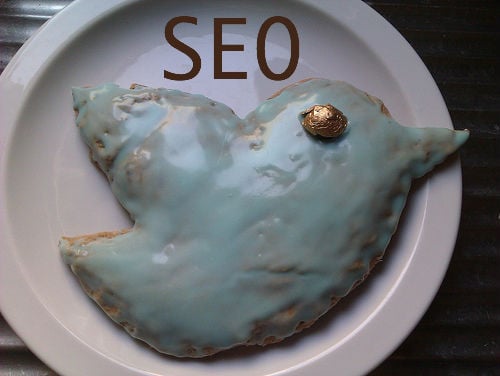Search Engine Optimization has Winners and Losers
If you don't rank on the first page of search engines, chances that people will find you through search are reduced significantly. Data confirms that fewer than 10% of people even get to the second page of search engine results. Other data confirms that ranking #1 leads to four times more visits than even ranking #2.
The Role of Keywords in Search Engine Optimization
So how do you win in the competetive game of Search Engine Optimization (SEO)?
Admittedly, on-page factors are only 25% of the search engine optimization process. The other 75% is about earning links from authoritative and relevant websites. However, on-page optimization is the only part of SEO that is 100% in your control. That's why it's worth 'getting it right'.

Keywords are the search terms that people enter into search engines. Your rankings are based on the relevance of your page to those keywords, as well as your website's overall authority on the web. Your site should be optimized to help search engines identify your site as relevant to specific keywords.
To achieve perfect on-page keyword optimization, you need to know what to do and what to avoid.
Warnings About Keyword Targeting
Don't Forget User Experience
Getting inbound links is still the best way to gain authority on a keyword. Having a website that targets a keyword too aggressively will convey an unnatural feel to the user, and make them less likely to share or link to your site. Keep humans in mind when optimizing for keywords.
Don't Hurt Ranking for Other Keywords
Targeting certain keywords usually makes your page less relevant for other keywords. Before modifying a web page to target a specific keyword, check to see whether your page is already drawing in relevant traffic from other keyword searches. If so, you can consider breaking up your page content into multiple pages that target different sets of keywords. The more pages that your website has, the more opportunities you have to diversify your keyword targeting.
10 Places to Target Keywords
1. URL
Putting your target keywords in the URL of a page will help you rank for them. Keywords in the root domain count more than keywords in subdomains. For example, if you are targeting KeywordX, the domain www.KeywordX.com will rank higher than an identical page www.yourdomain.com/KeywordX.
Unfortunately, good root domains are hard to get these days. If you can't get your whole keyword phrase into the root domain, try fitting at least one keyword in it.
One good thing is that subdomains often are in your control. Putting keywords in your subdomain will help you rank higher for those keywords.
2. Page Title
P age Titles are very influential in search engine rankings. If you're trying to rank for a keyword, put it in your page title. Putting it at the beginning of a page title will help you rank for it better.

3. Inbound Links (with Keyword Anchor text)
Anchor text is the clickable text of a link. Making your anchor text the keyword you are targeting can improve your ranking for that keyword.
External links (from other websites) count more than internal ones from your own sub domains. However, the internal links are in your control. Consider adding a footer or a list of links on another one of your web pages, and linking to the page you want to rank for using the corresponding keyword as anchor text.
4. Outbound Links (Avoid!)
While inbound links with keyword anchor text help you rank higher, outbound links in the page you're trying to rank for will hurt your rankings. The way to balance this is to use anchor text, link only when you're redirecting the visitor to a more valuable page, and especially avoid excessive outbound links on valuable pages.
5. Header
As with page titles, header text counts more towards ranking for a keyword than regular on-page body text does. Headers are denoted by h1, h2, or h3 tags in HTML. It is adviseable to have at least one piece of header text with your keyword in it.

6. Bold Text
Making a piece of text bold will help it stand out as a keyword, and may help you rank higher for those keywords.7. Body Text
Athough body text counts less than page title, URL, header, and bold text, it still counts! Include the keywords you want to rank for into your body text a few times but not too much.
8. Meta Description
Putting keywords in your meta description actually does not help you rank for those keywords in search. However, have you noticed that when you do a search in Google, the keywords that appear in the meta description are bolded? This gets more people to click on your website, see it, and possibly even share it. Sharing means external links, which are beneficial to SEO.
9. Image ALT Text
While search engines 'read' text, not images, HTML has a handy way of associating text with an image. You can do this is with ALT text, denoted by the .
Putting keyword-driven ALT text on an image helps the page rank for those keywords. While this has less influence than even lowly body text, it can help you get found in image search. For some websites, this can be a valuable traffic source.
10. Image File Names
Putting keywords in the image file names before you upload them can be another way to gain keyword relevance. Like anchor text, it helps you in both on-page keyword targeting and image search rankings.
Photo credit: MelissaGray
![→ Download Now: SEO Starter Pack [Free Kit]](https://no-cache.hubspot.com/cta/default/53/1d7211ac-7b1b-4405-b940-54b8acedb26e.png)








